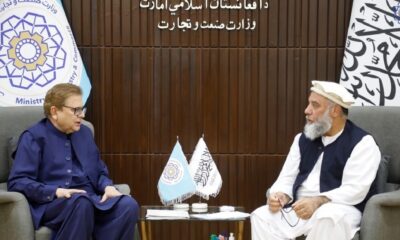Latest News
Iran’s Qomi to attend Doha meeting, slams ‘unilateral’ approaches by ‘big powers’
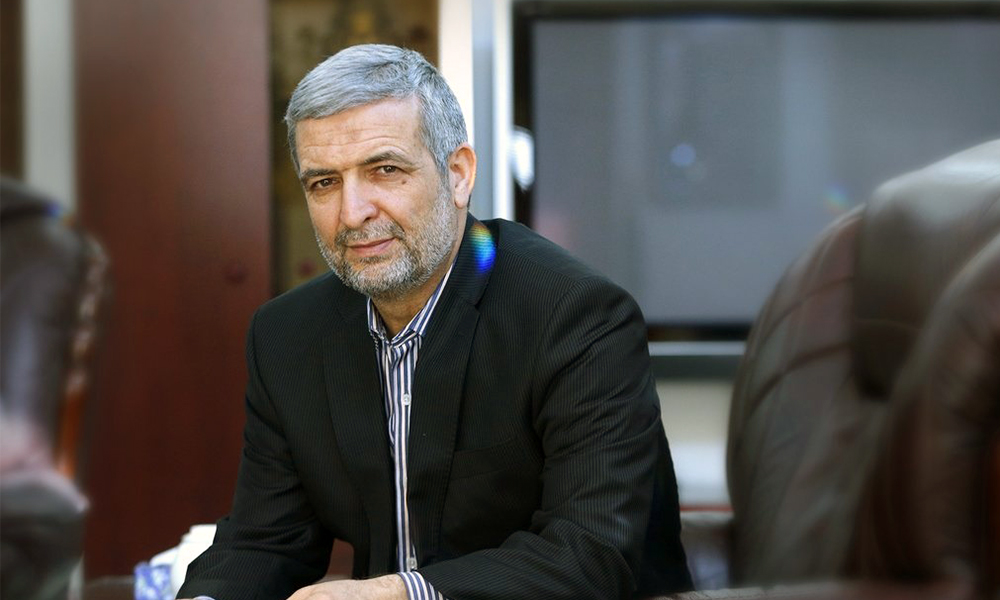
Hassan Kazemi Qomi, the special envoy of the Iranian president for Afghanistan affairs, has confirmed he will attend Monday’s meeting on Afghanistan set to be held in Doha and hosted by the United Nations’ secretary general.
In an interview with the Afghan Voice Agency (AVA) he said Iran’s stance at the meeting will be based on a “deep understanding of the realities and requirements” of the Afghanistan government and its people.
He said: “We strongly and openly criticize the unilateral approaches adopted by big powers and international organizations.”
Referring to similarities between Iran and Afghanistan’s people, Qomi said that Iran opposes the sanctions leveled against Afghanistan and urged the UN to take into account the humanitarian situation in the country.
“In our opinion, the view of humanitarian issues by the United Nations should not be gendered[-based],” he said, adding: “We are extremely frightened that this path will cause the Security Council to impose more sanctions this autumn and winter with different reasons based on Chapter 7 of the United Nations Charter.”
“As you will see, our stance in Doha will be based on facts and principles that are not necessarily favored by the big powers,” Qomi said, adding, “… we believe that every government should independently defend the legitimate rights of its nation based on reasonable arguments and in a responsible way in accordance with international laws and rules. This policy could have been seen by the international community during our nuclear talks when we defended our nuclear rights under the NPT. Obviously, we hope that Afghanistan will succeed in the path of legitimate defense with an independent position and playing a responsible role. That way, we will be a supporter and consultant to them [Afghans].”
UN Secretary General Antonio Guterres is scheduled to host a two-day meeting Monday and Tuesday in Doha, Qatar, which will bring together a number of special envoys on Afghanistan.
Latest News
Sources: US drops bounties on key IEA officials

Sources close to Acting Interior Minister Sirajuddin Haqqani tell Ariana News that the U.S. government has removed bounties on several Islamic Emirate officials.
According to the sources, those no longer on the list include Sirajuddin Haqqani, Abdul Aziz Haqqani, and Yahya Haqqani.
Latest News
Azizi and Sadiq discuss Kabul-Islamabad trade and transit challenges
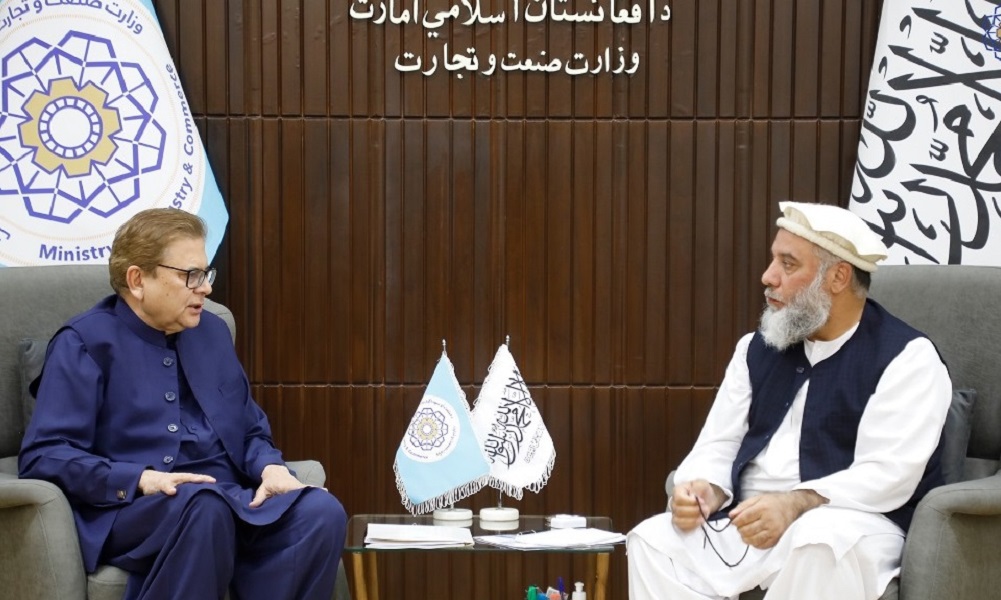
Acting Minister of Industry and Commerce, Nooruddin Azizi, and Mohammad Sadiq, Pakistan’s Special Representative for Afghanistan, met on Saturday to address ongoing trade and transit challenges, stressing the importance of preventing political tensions from impacting economic ties, the ministry said in a statement.
The two officials focused on finalizing the Preferential Trade Agreement (PTA) and resolving issues related to the Afghanistan-Pakistan Transit Trade Agreement (APTTA), the statement read.
The meeting also discussed the upcoming visit of Pakistan’s Deputy Prime Minister to Afghanistan and a planned visit by an Islamic Emirate delegation to Pakistan.
The ministry hailed Sadiq’s visit to Kabul as a positive step, with Azizi emphasizing its constructive role in enhancing bilateral trade relations.
Latest News
Muttaqi to Pakistani envoy: Trade and transit obstacles benefit no one
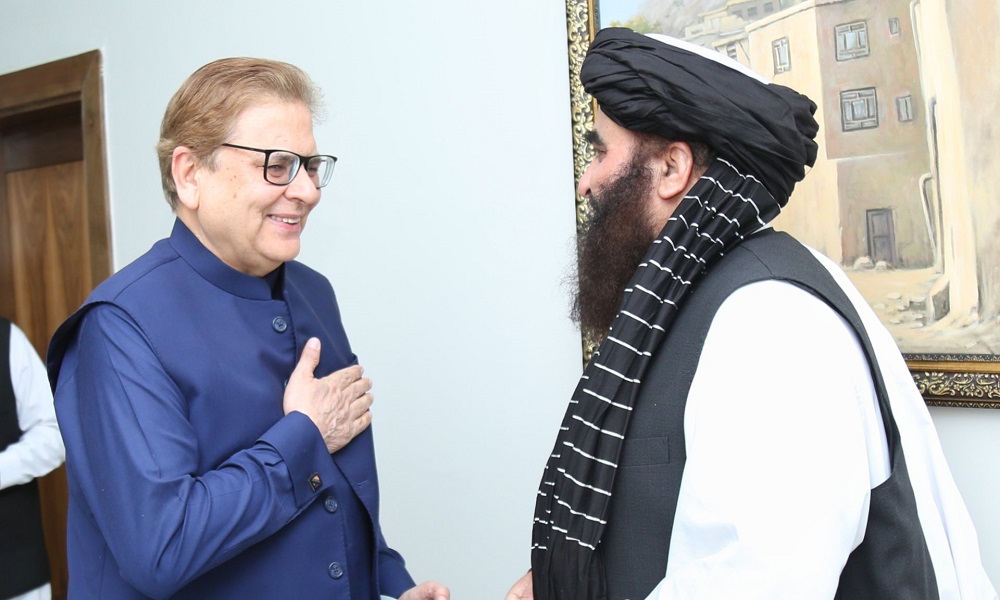
Acting Foreign Minister Amir Khan Muttaqi and Pakistan’s Special Representative for Afghanistan Mohammad Sadiq met on Saturday and discussed bilateral relations, political and economic cooperation, security and transit, said Zia Ahmad Takal, head of public relations at Foreign Ministry in a statement.
In this meeting, Muttaqi emphasized that obstacles to trade and transit are not in anyone’s interest and that certain issues should not be linked together.
He added that the process of Afghan refugees returning from Pakistan should be carried out gradually and with dignity.
According to the statement, Pakistan’s special representative also acknowledged that ensuring security in Afghanistan benefits both Pakistan and the region.
He committed to introducing measures to facilitate the visa issuance process for Afghan citizens.
Mohammad Sadiq also stated that practical steps will be taken to resolve existing trade and transit challenges.
-

 World4 days ago
World4 days agoPutin agrees to 30-day halt on energy facility strikes in Ukraine
-

 Sport4 days ago
Sport4 days agoIPL 2025 celebrates 18 years of immense success
-
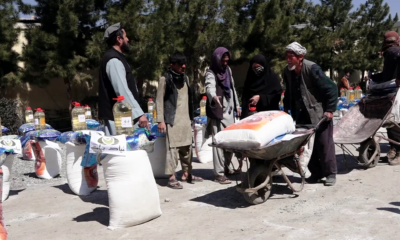
 Latest News4 days ago
Latest News4 days agoBayat Foundation helps needy families in Kabul during Ramadan
-

 Latest News3 days ago
Latest News3 days agoTorkham crossing to reopen after 25-day shutdown
-
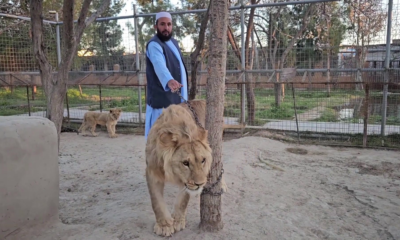
 Latest News3 days ago
Latest News3 days agoHelmand environmental department opens new Zoo
-

 Latest News4 days ago
Latest News4 days agoAfghan-Pakistan talks to reopen Torkham border ‘end on positive note’
-
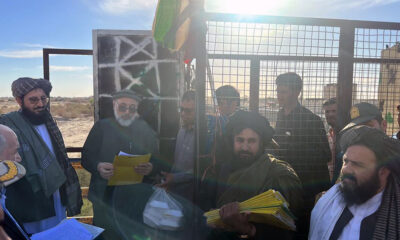
 Latest News2 days ago
Latest News2 days agoAfghan prisoners in Iran sent home
-

 Latest News3 days ago
Latest News3 days agoRights watchdog calls on Pakistan to ‘immediately stop’ forced deportations of Afghan refugees




